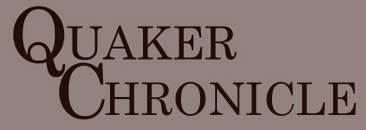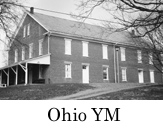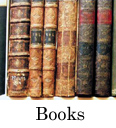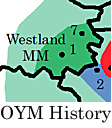William Flanner was a prominent minister at Short Creek and Somerton in the early 19th century. He had a meek spirit that exemplified Ohio's ministers at the time, but his continuing labors for Christ Jesus were done without fanfare. He is an example of a faithful Friend with a mentoring attitude who does not usually appear in histories.
Flanner was born in North Carolina. His father died when he was very young, and his mother apprenticed him at an early age. A Quaker school teacher taught Flanner to read, and it was after this time that Flanner joined Friends.
Flanner and his wife Peninah moved to Short Creek in 1808. They lived there until 1831 and lived at Somerton most of the remainder of their lives. As a recorded minister, Flanner visited many Friends in these two MMs. He played a major role in keeping the women Friends informed on the planning of the Mount Pleasant Yearly Meeting House, as the building committee was comprised entirely of men. During his membership at Somerton, Flanner noticed that the young Joseph Edgerton, then an Elder, should have been recognized as a Minister instead. Flanner thus initiated the deliberations resulting in the recognition of Edgerton's gift in the ministry.
During the troubles surrounding the Hicksite division, Flanner made a concerted effort to limit the widening conflagration. He called on Friends to proceed with caution, and encouraged ministers to set a better example than they chose to do. Flanner objected to the increasing vitriol that appeared in the press, and he visited Elisha Bates on at least one occasion to encourage him to set a better example. In an effort to be consistent with his own advice, Flanner burned his own journal so that nothing that he had written would be used to fuel the flames. Flanner was one of six Friends attending a meeting of the M4S in 1832 who objected to an address Elisha Bates had drafted to be sent to the meetings in Ohio YM on the basis that Bates was starting to use unscriptural language and ideas. Flanner died in 1837.
Source: EAQG 4:201-202, 472, 578 |






